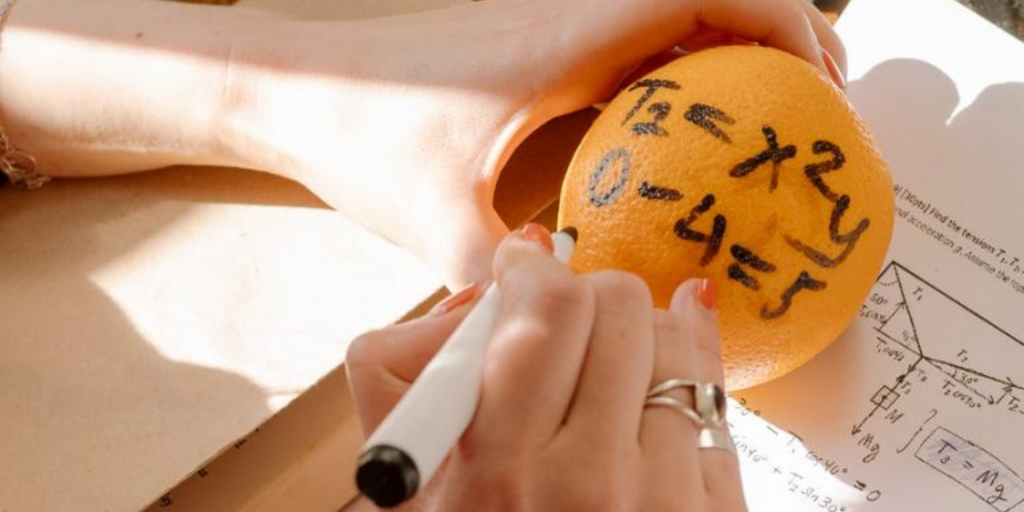Dyscalculia Math Tutors Coaches Learning Specialists
ONE-TO-ONE, IN-PERSON AT YOUR HOME, OR VIRTUAL DYSCALCULIA MATH TUTORING. PRIVATE PAY TRAVELING TO:
New York City (NYC)
Manhattan
Brooklyn
Queens
Staten Island
Bronx
Long Island (including the Hamptons)
Westchester
New Jersey (NJ)
Connecticut (CT)

TESTIMONIALS


ALEX
Undergraduate Degree in Secondary Education with a Concentration in Mathematics, Graduate Degree in Special Education

DR. DAVID
Master of Philosophy and Doctor of Philosophy, Master of Educational Leadership

LEAH
Bachelor’s degree in Secondary Education with a Concentration in Mathematics, M.S. in General and Special Education (grades 1-6)

JEFFREY
Master’s in Mathematics Education(5-9)

MELISSA K.
Certified Math and Special Education Teacher, MS Math Education

MELISSA S.
Ph.D. Candidate in School Psychology, Master’s in Special Education
**Guarantee: It’s critical that whoever receives our tutoring services connects with the specialist, the specialist has expertise in the area of need, and is available to travel to you. If you are not 100% satisfied with our services, such as dyscalculia specialist near me, we are 100% committed to finding you the right professional.
What Is Dyscalculia?
WHAT IS DYSCALCULIA? – MATH’S DYSLEXIA – SIMPLE EXPLANATION AND SOLUTION
Does Your Child Have Dyscalculia or a Math Learning Disorder?
Symptoms of dyscalculia may vary for each student depending on their different stages of learning math. It is estimated that five to seven percent of elementary school children may show symptoms of dyscalculia. It is yet to be known whether it is more common in boys or girls.
Some signs that your child may have dyscalculia include:
- Difficulties with keeping track of time, following directions, remembering schedules and sequence of events
- Struggles with name recollection, name-face association, and often substitutes names that begin with the same letter
- Difficulties with learning basic math operations
- Often makes mistakes in writing, reading, and remembering numbers; often adds, substitutes transposes, omits, or reverses numbers
- Struggles with math concepts, rules, formulas, order of operations, and basic math facts
- Poor visualization skills, especially when it comes to mechanical processes, including simple tasks such as picturing numbers on a clock, geographical areas or maps of streets, cities, or oceans
Get insights into supporting students with disabilities resulting from dyslexia, dysgraphia, and dyscalculia through comprehensive Q&A by NY State Education Dept.

- Lacks a sense of direction and often gets lost or disoriented
- Often loses track of things and belongings
- Poor athletic performance due to difficulties in keeping up with routines and motor sequencing
- Trouble remembering how to keep score in games, like bowling, cards, etc.
- Gets anxious during math tasks
- Uses fingers to count, loses track when counting, difficulty with mental math, adds dots or tally marks
- Numbers and math seem like foreign languages
- Confused when counting (for younger students)
- Struggles with associating numbers with their corresponding number words (such as the symbol 8 for eight)
What Are the Causes of Dyscalculia?
The causes of dyscalculia are still to be discovered. Some of the possible causes include:
- Genes. Like other similar disorders, dyscalculia is genetic and often runs in the family.
- Brain Development. The brain structure of individuals with dyscalculia is different in areas where the brain functions less efficiently in handling numbers.
- Brain Injury. Injuries to a certain part of the brain may cause acquired dyscalculia.
Other factors that may cause dyscalculia are:
- Premature birth
- Low birth weight
- Fetal alcohol syndrome

Should You Have Your Child Assessed for Dyscalculia?
An evaluation is required to determine whether a student has dyscalculia, particularly when the child’s mathematics abilities are significantly lower for his or her age, intelligence, and background. A licensed neuropsychologist should perform the evaluation.
Several tests are conducted to assess the student’s:
- Computational skills
- Math fluency
- Mental computation
- Quantitative reasoning
What Are the Strategies in Coaching and Tutoring Students with Dyscalculia?
How to Introduce the New Concepts/Lessons to Students?
- Review what the student already learned before teaching new skills.
- Teach students to “self-talk” through solving problems.
- Let the student write out charts or draw sketches to solve problems.
- Use graph paper to help line up numbers and problems.
- Give the student a list of the math formulas taught in the class.
- Use coins, blocks, and puzzles to teach math ideas.
- Use attention-getting phrases like, “This is important to know because….”
- Use concrete examples that connect math to real life.
- Check-in frequently to make sure the student understands the work.
What Are the Ways to Give Students Instructions and Assignments?
- Create separate worksheets for word problems and number problems.
- Highlight or circle keywords and numbers on word problems.
- Allow extra time on tests.
- Give step-by-step instructions and have the student repeat them.
- Provide charts of math facts or multiplication tables.
- Let the student use a calculator when the computation isn’t what’s being assessed
- Give a rubric that describes the elements of an assignment.
- Use an extra piece of paper to cover up most of what’s on a math sheet or test to make it easier to focus on one problem at a time.
- Give more space to write problems and solutions.
- Break down worksheets into sections.
- Use visual aids or manipulatives when solving problems.
We work with individuals who have:
Different methods are used to determine learning levels
- Allow use of fingers and scratch paper
- Create diagrams and draw math concepts
- Provide peer assistance
- Encourage the use of graph paper
- Usage of colored pencils to set apart number problems
- Work with manipulatives
- Draw pictures of word problems
- Use of mnemonic devices to understand math concepts
- Use rhythm and music to teach math facts and to set levels to a beat
- Schedule use of computer for the student to practice
What Is the Best Math Tutoring Approach for Students with Dyscalculia?
Tutors, parents, teachers, and the neuropsychologist must work together to support students with math disorders in the following ways:
- Personalized teaching plans based on the specific needs of each student
- Foundational skills coaching to advance students to higher-level math
- Introducing and encouraging math-based games
- Usage of graph paper to help to learn math
- Present new math-related skills through explanations and examples before moving on to abstract interpretations
- Concrete Representational Abstract (CRA) math tutoring approach
How Can Themba Tutors’ Dyscalculia Tutoring and Coaching Help You?
Our tutоrѕ will tаilоr оur dyscalculia tutoring and coaching services to address your nееdѕ. We believe that working closely with the child’s parents and teachers is key to the student’s success. As such, we will put focus and add key areas that you feel need to be reinforced to ensure that your child develops the right skills and confidence to accomplish tasks on their own.
At Themba Tutors, we collaborate with learning specialists, doctors, and parents to customize a program that will give your child the results you’re looking for. Themba Tutors is invested in driving your child to achieve academic success. If your child faces challenges and needs help with math due to dyscalculia and other learning disorders, we can offer our support to help them overcome these challenges. We can start tutoring your child as soon as you want.
HELPFUL VIDEOS
In this video, you will learn about the development, training, characteristics and teaching strategies to promote inclusion of dyscalculic students.
We have expertise in:
- Online Tutoring/Coaching
- English, and English Language and Arts (ELA)
- Literature
- Reading (Grades 1-12, and College)
- College Application Essay
- Writing (School-Age, College, and Adult)
- Song, Poetry, and Creative Writing
- Handwriting Tutors
- Math (Grades 1 to 12, College, Adult)
- Pre-Algebra, Algebra I, and Algebra II
- Geometry
- Trigonometry
- Pre-Calculus and Calculus
- Statistics
- Exeter Math
- Biology (High School Biology, and AP Biology)
- Chemistry
- Physics
- Earth Science
- Earth Science
- History and Social Studies
- Psychology
- Foreign Languages
- Test Prep (SAT, GRE, SHSAT, ISEE/SSAT, ELA, Regents, TASC, MAP Growth, LOTE Test, GED Test)
- Graduate School & Ph.D. Application Consulting
- Executive Functioning Skills (Grades 4 to 12, college, and adult)
- Adult Dyslexia Tutoring
- Adult ADHD/ADD Coaching
- Study Skills/Test Taking Tutoring
- International Baccalaureate IB Tutors
- Homeschooling
- Digital Literacy
- Computer Science
- Engineering Design
- Python and JavaScript Computer Programming (Coding) Tutoring
- Machine Learning
- Data Analytics, and Data Science
Chat with Themba Tutors Today! Our dyscalcula math tutors are ready to help you right now!
FREE CONSULTATION!!!
Call: (917) 382-8641, Text: (833) 565-2370
Email: [email protected]
(we respond to email right away!).
We were very pleased with Samara tutoring service. Lindsay said she really enjoyed working with Samara. Lindsay finished her math class with a B, which is a great tribute to the support and guidance that Samara provided. Lindsay has completed her math requirement and she will graduate this weekend.
We would definitely recommend Samara, especially for any student struggling with math anxiety and/or dyscalculia. Thanks to Samara and you for your help!


